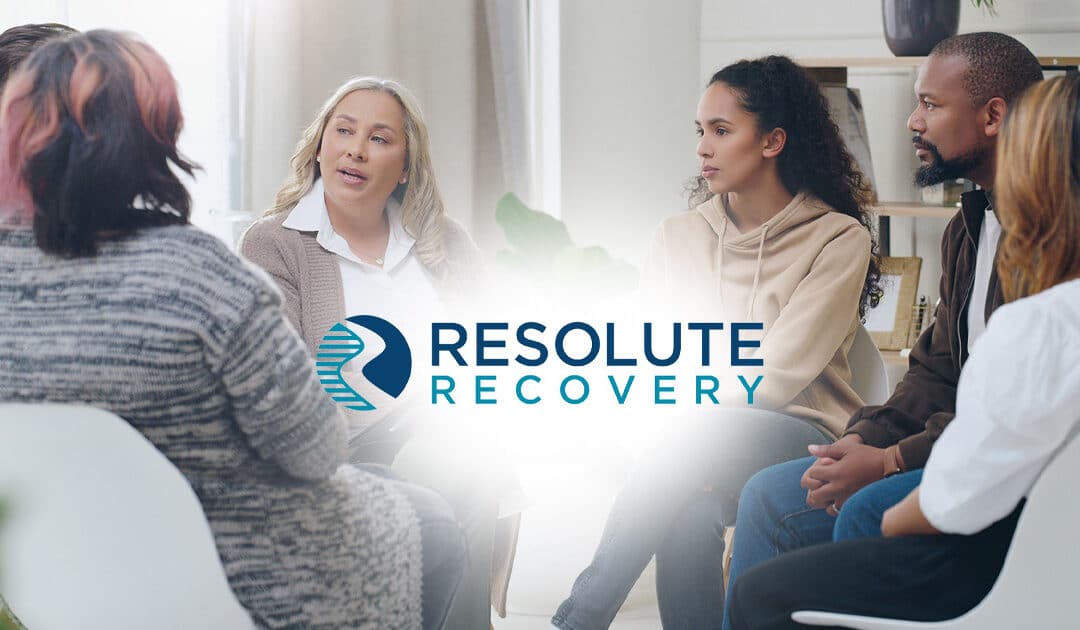Why is a Sober Support Network Important?
Imagine embarking on a challenging hike. Naturally, you wouldn’t attempt it alone, right? Instead, you’d bring a supportive companion to share the journey, offer encouragement, and help navigate any obstacles. Similarly, recovery from addiction follows a comparable path. Therefore, a strong sober support network acts as your trusted companion, providing vital support, guidance, and encouragement throughout your journey. By having this network, you ensure that you are not alone and that you gain the strength needed to overcome challenges effectively.
According to the National Institute on Drug Abuse (NIDA), strong social connections are crucial for successful addiction recovery. A sober support network fosters a sense of belonging, reduces feelings of isolation, and provides a safe space to share your struggles and triumphs. Studies have shown that individuals with robust sober support networks are less likely to relapse and have a higher chance of achieving long-term sobriety.
Building a Powerful Sober Support Network: Different Components
Your sober support network can be a diverse group of individuals who offer various forms of encouragement and support. Let’s explore the key components:
- Recovery Support Groups: These groups, such as Alcoholics Anonymous (AA) or Narcotics Anonymous (NA), provide a safe space to connect with others who understand your journey. Sharing experiences and offering support can be incredibly motivating.
- Therapist or Counselor: A qualified therapist can equip you with valuable coping mechanisms, address underlying mental health issues, and offer personalized guidance throughout your recovery.
- Sober Living Facilities: Living in a sober environment with others committed to recovery can provide structure, accountability, and a strong sense of community.
- Accountability Partner: This can be a recovering friend, family member, or sponsor who offers encouragement, listens without judgment, and holds you accountable for your progress.
- Supportive Friends and Family: While not everyone in your life may understand your journey, supportive loved ones can offer encouragement, understanding, and practical support.
Finding Your Perfect Sober Support Network Fit
The ideal sober support network is unique to each individual, reflecting your personal needs and circumstances. To build a network that truly supports your recovery journey, consider the following factors:
- Shared Experiences: Connecting with individuals who understand your specific struggles can be highly beneficial. Moreover, these connections foster empathy and validation, as they have faced similar challenges. Consequently, they can offer practical advice and emotional support from a place of genuine understanding. By engaging with others who share your experiences, you enhance the quality of support and guidance available to you.
- Communication Style: Choose individuals with whom you feel comfortable communicating openly and honestly. In addition, effective communication is crucial for building trust. This, in turn, ensures that you can share your thoughts and feelings without fear of judgment. By fostering a communication style that encourages openness, you create a supportive environment where mutual understanding and trust can flourish.
- Location and Accessibility: Accessibility plays a crucial role in maintaining consistent support. Whether you prefer local in-person meetings or virtual connections, ensure that your support network is easily accessible and fits well with your lifestyle and schedule.
- Program Philosophy: If you are following a specific program, such as the 12-Steps, consider finding a network that aligns with its principles and practices. A network that supports your chosen approach can reinforce your commitment and provide tailored guidance relevant to your recovery path.
Tips for Building Strong Connections within Your Sober Support Network:
- Be open and honest about your recovery journey.
- Actively participate in support groups and meetings.
- Regularly communicate with your accountability partner.
- Express gratitude for the support you receive.
- Be a source of support for others within your network.
Nurturing Your Sober Support Network: Overcoming Challenges and Building Resilience
Building a strong sober support network is essential for long-term recovery, but maintaining it requires ongoing effort. Challenges may arise, such as changes in life circumstances, geographical distance, or differing recovery paces. However, these obstacles can be overcome with perseverance and effective communication.
Overcoming Challenges
- Geographical Distance: While physical proximity is beneficial, technology offers ways to stay connected. Utilize video calls, messaging apps, and online support groups to maintain relationships with distant support members.
- Differing Recovery Paces: It’s natural for individuals to progress at different speeds. Respect each person’s journey and focus on providing support without judgment.
- Life Changes: Major life events can impact your sober support network. Be open about your changes and seek new connections if necessary.
Building Resilience
A resilient sober support network is crucial as it can weather life’s storms and adapt to various challenges. To enhance its strength and effectiveness, consider implementing the following strategies:
- Open Communication: Honest and open communication is essential for a robust support network. Therefore, make it a priority to share your feelings, challenges, and successes with your network. This transparency fosters trust and deeper connections, enabling you to receive and offer support more effectively.
- Mutual Support: Remember, support is a two-way street. By offering assistance and encouragement to others in your network, you contribute to a reciprocal relationship. This mutual support strengthens bonds and creates a more resilient network overall, where everyone feels valued and supported.
- Setting Boundaries: It is important to establish healthy boundaries within your support network. Doing so ensures mutual respect and helps prevent burnout. Clearly defined boundaries enable individuals to maintain a balanced relationship, reducing the risk of emotional exhaustion and maintaining the network’s integrity.
- Self-Care: Prioritize self-care, as it is crucial for maintaining your overall well-being and effectively supporting others. By actively taking care of your own physical, emotional, and mental health, you not only enhance your capacity to provide meaningful support but also ensure that you remain resilient in the face of challenges. Consequently, prioritizing self-care allows you to sustain your energy and effectiveness, contributing to a more robust and supportive network.
By incorporating these strategies, you can build a stronger and more resilient sober support network that will support you through your recovery journey and beyond.
Expanding Your Sober Support Network
As your recovery journey progresses, you may encounter new opportunities to broaden and strengthen your sober support network. Consequently, this expansion can provide you with additional resources, perspectives, and encouragement as you continue on your path to sustained sobriety. To help you with this process, here are several ways to actively grow your support network:
- Attend Different Types of Support Groups: Explore a variety of support groups to find ones that resonate with you. Whether it’s traditional in-person meetings, specialized support groups focused on particular aspects of recovery, or alternative approaches such as holistic recovery circles, engaging in diverse settings can enrich your experience and connect you with different support systems.
- Volunteer in Recovery-Related Activities: Contributing your time and skills to recovery-related activities can be both fulfilling and beneficial. Volunteering at local recovery centers, participating in community outreach programs, or helping organize events can not only give back to the community but also connect you with others who share your commitment to sobriety.
- Join Online Recovery Communities: Embrace the opportunities offered by online recovery communities. These virtual spaces can provide a sense of belonging and support, regardless of geographical location. Engaging with forums, social media groups, or virtual meetings allows you to connect with individuals from diverse backgrounds, offering new insights and shared experiences that can enhance your own recovery journey.
By actively seeking out these opportunities, you can continually expand your sober support network, gaining additional strength and resources to support your ongoing journey toward a healthier and more fulfilling life.
The Role of Technology
Technology has significantly revolutionized the way we connect with others, offering new avenues for support and communication. In particular, online platforms and social media can be powerful tools for finding and connecting with individuals who are also in recovery. By utilizing these digital resources, you can access numerous online support groups and forums, where you can share your experiences, receive encouragement, and build a network of support.
However, it is important to remember that while technology provides valuable opportunities for connection, it should complement rather than replace face-to-face interactions. Balancing virtual connections with in-person relationships ensures a well-rounded support system that nurtures both emotional and social well-being.
Celebrating Milestones and Building a Lasting Foundation
Achieving milestones in recovery is a cause for celebration. Sharing these moments with your sober support network strengthens your bonds and reinforces your commitment to sobriety.
Building a strong sober support network is an investment in your long-term recovery. It provides a solid foundation of support, encouragement, and accountability. Moreover, by nurturing these relationships, you enhance your chances of maintaining sobriety and living a fulfilling life. Therefore, cultivating a robust network can significantly impact your overall well-being and recovery journey.
Additional Resources for Building a Strong Sober Support Network
Building a sober support network might seem daunting initially. However, there are numerous resources available to help you get started:
- SAMHSA National Helpline: 1-800-662-HELP (4357) offers 24/7 confidential support and information on addiction treatment and recovery resources. (https://www.samhsa.gov/)
- The National Alliance on Mental Illness (NAMI): Provides support groups, education, and advocacy for individuals and families affected by mental health conditions, which often co-occur with addiction.(https://www.nami.org/)
- FindTreatment.gov: This government website helps individuals find treatment facilities and support groups based on their location and specific needs. (https://www.findtreatment.gov/)
- Recovery Support Network: Offers online courses and resources for relapse prevention and building a strong support network. (https://recoverysupportnetwork.org/)
- Smart Recovery: Provides evidence-based tools and support for addiction recovery. (https://www.smartrecovery.org/)
Remember, you are not alone on your recovery journey. With the support of a strong sober support network, you can overcome challenges, celebrate successes, and build a fulfilling life in sobriety. Contact Resolute Recovery today and discuss how we can help you get on, and stay on the path to recovery.




